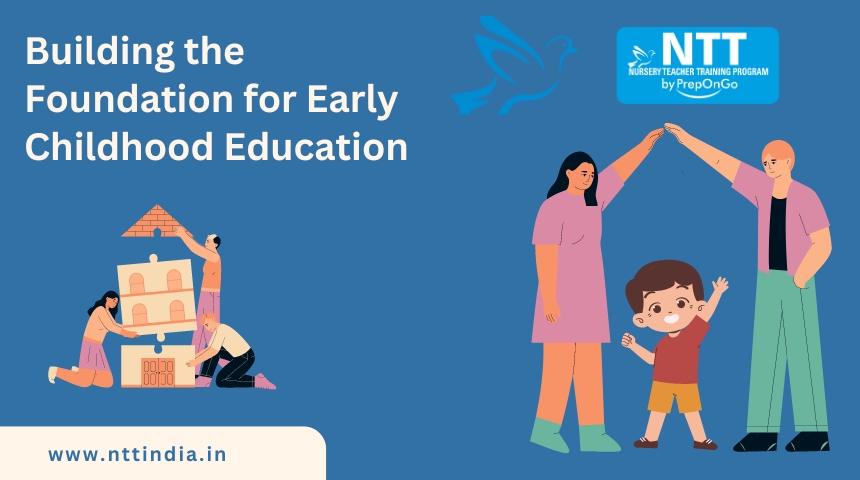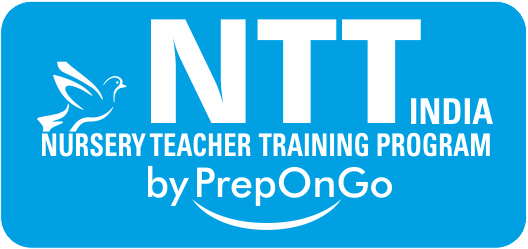Building the Foundation for Early Childhood Education

Early childhood education (ECE) is a critical phase in a child’s development that lays the groundwork for lifelong learning and success. During these formative years, children develop essential cognitive, social, emotional, and physical skills that shape their future. In this blog post, we will explore the importance of building the foundation for early childhood education and how educators and parents can support this crucial stage of development.
Why Early Childhood Education Matters
The early years are a period of rapid growth and development. Research shows that high-quality early childhood education can have significant long-term benefits, including:
- Enhanced Cognitive Development: Early learning experiences stimulate brain development, improving cognitive skills such as memory, problem-solving, and language.
- Social and Emotional Growth: Children learn to interact with peers, develop empathy, and manage their emotions, which are vital for social competence and mental health.
- School Readiness: ECE prepares children for the academic demands of school, reducing the likelihood of future learning difficulties.
- Lifelong Learning Habits: Positive early learning experiences foster a love for learning and curiosity that can last a lifetime.
Key Components of a Strong Early Childhood Education Foundation
1. Play-Based Learning
Play is the primary way young children learn about the world around them. It promotes creativity, problem-solving, and social skills.
Tips for Implementing Play-Based Learning:
- Provide Diverse Materials: Offer a variety of toys, books, and art supplies to stimulate different types of play.
- Create Safe Play Environments: Ensure spaces are safe, inviting, and conducive to free exploration.
- Incorporate Structured and Unstructured Play: Balance guided activities with free play to encourage both skill development and imagination.
2. Language and Literacy Development
Early exposure to language and literacy sets the stage for successful reading and writing skills.
Strategies for Promoting Language and Literacy:
- Read Aloud Daily: Share stories, poems, and informational books to develop vocabulary and comprehension.
- Encourage Conversations: Engage children in discussions, ask open-ended questions, and listen to their responses.
- Provide Writing Opportunities: Offer tools like crayons, markers, and paper for children to experiment with writing and drawing.
3. Social and Emotional Learning (SEL)
Developing social and emotional skills is crucial for building relationships, self-awareness, and emotional regulation.
Ways to Foster SEL:
- Model Positive Behaviors: Demonstrate empathy, cooperation, and problem-solving.
- Teach Emotion Recognition: Help children identify and express their emotions appropriately.
- Create a Supportive Environment: Encourage positive interactions and provide guidance during conflicts.
4. Physical Development
Physical activity is essential for healthy growth and development, supporting both motor skills and overall well-being.
Ideas for Promoting Physical Development:
- Incorporate Movement: Plan activities that involve running, jumping, and climbing.
- Offer Fine Motor Activities: Provide puzzles, building blocks, and arts and crafts to enhance hand-eye coordination.
- Encourage Outdoor Play: Spend time outside to promote physical health and connection with nature.
5. Cognitive and Problem-Solving Skills
Critical thinking and problem-solving abilities are fundamental for academic success and everyday life.
Techniques to Develop Cognitive Skills:
- Engage in Hands-On Activities: Use manipulatives, sensory bins, and experiments to stimulate curiosity and learning.
- Ask Thought-Provoking Questions: Encourage children to think critically and explore different solutions to problems.
- Integrate Learning Across Domains: Connect literacy, math, science, and art activities to reinforce concepts and skills.
The Role of Educators and Parents in ECE
Educators
Early childhood educators play a vital role in creating a nurturing and stimulating learning environment. Their responsibilities include:
- Planning and Implementing Curriculum: Develop and execute age-appropriate, engaging lesson plans.
- Observing and Assessing: Regularly monitor children’s progress and adjust teaching strategies accordingly.
- Building Relationships: Foster a trusting and respectful rapport with children and their families.
Parents
Parents are their children’s first and most influential teachers. They can support early childhood education by:
- Creating a Learning-Rich Home Environment: Provide books, educational toys, and opportunities for exploration.
- Engaging in Learning Activities: Participate in reading, playing, and educational outings with their children.
- Communicating with Educators: Stay informed about their child’s progress and collaborate with teachers to support learning goals.
Conclusion
Building the foundation for early childhood education is a collaborative effort that involves educators, parents, and the broader community. By focusing on play-based learning, language and literacy development, social and emotional learning, physical development, and cognitive skills, we can create a holistic and supportive environment for young children. These efforts ensure that they are well-prepared for the challenges and opportunities of the future, setting the stage for lifelong learning and success.
Investing in early childhood education is one of the most impactful ways to nurture the potential of every child, providing them with the tools and experiences they need to thrive academically, socially, and emotionally. Together, we can build a strong foundation that supports the growth and development of our youngest learners.
